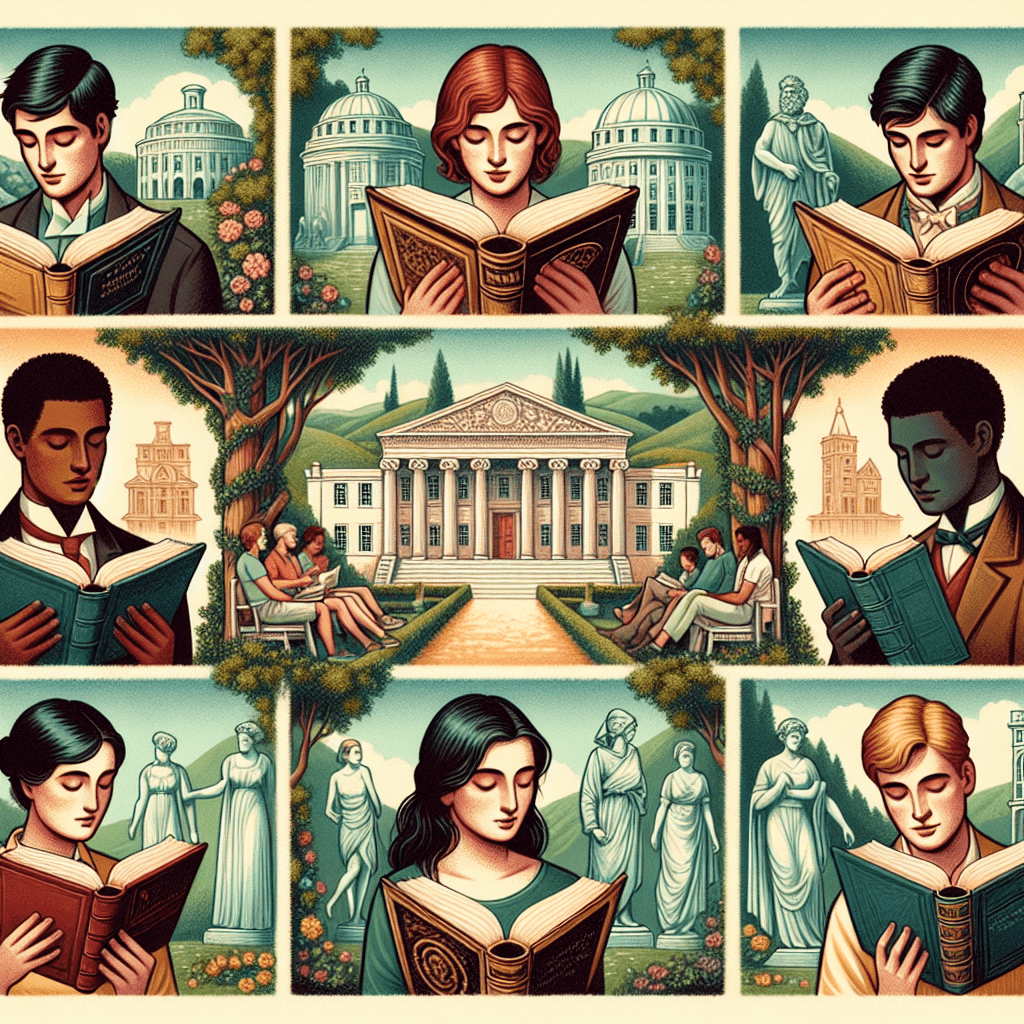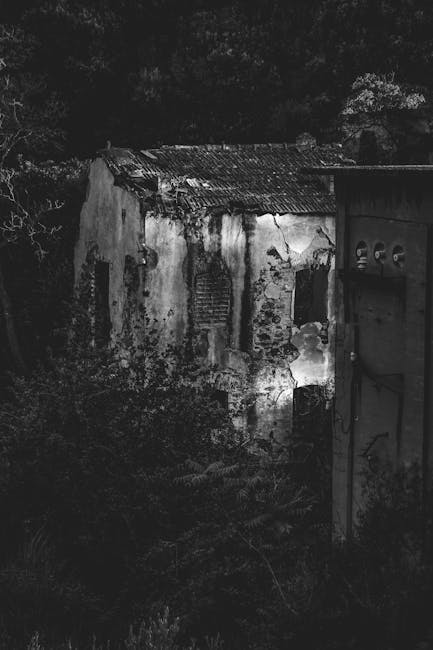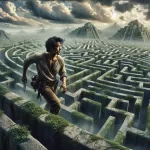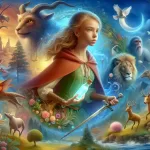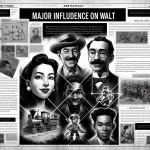-
Obsah
“Unraveling the Dark Allure of Academia: A Deep Dive into Donna Tartt’s ‘The Secret History’ – Themes of Morality, Obsession, and the Fragility of Friendship.”
“Secret History” by Donna Tartt is a psychological thriller that delves into the lives of a group of elite college students at a small liberal arts college in Vermont. The novel is narrated by Richard Papen, who becomes entangled with a charismatic professor and his enigmatic group of students, leading to a series of events that culminate in murder. The themes of the novel explore the nature of beauty, the moral implications of intellectualism, and the complexities of friendship and betrayal. Key characters include Richard, the outsider seeking acceptance; Henry, the brilliant but troubled leader; Camilla and Charles, the alluring twins; and Bunny, whose fate becomes central to the story’s dark turn. Through its intricate narrative and rich character development, “Secret History” examines the allure of elitism and the consequences of transgression.
Summary of The Secret History
“The Secret History,” a novel by Donna Tartt, unfolds in a prestigious liberal arts college in Vermont, where a group of elite students becomes enmeshed in a web of intellectualism, ambition, and moral ambiguity. The story is narrated by Richard Papen, a transfer student from California who is drawn to a small, exclusive group of students studying ancient Greek under the enigmatic professor Julian Morrow. This group, consisting of the charismatic Henry Winter, the beautiful Camilla and Charles Macaulay, and the aloof Bunny Corcoran, is marked by their intense dedication to their studies and their shared disdain for the mundane aspects of life. As Richard becomes increasingly involved with them, he is captivated by their intellectual pursuits and the allure of their seemingly glamorous lifestyle.
However, as the narrative unfolds, it becomes evident that this group is not merely a collection of brilliant minds; they are also deeply flawed individuals. Their obsession with their studies leads them to engage in increasingly reckless behavior, culminating in a tragic event that irrevocably alters their lives. The novel’s central conflict arises from the murder of Bunny, who becomes a liability to the group after discovering their dark secret. The tension escalates as the remaining members grapple with guilt, paranoia, and the consequences of their actions. This pivotal moment serves as a catalyst for exploring themes of morality, the nature of evil, and the complexities of friendship.
Throughout the novel, Tartt delves into the psychological intricacies of her characters, revealing their motivations and vulnerabilities. Richard, as the narrator, provides a lens through which readers can examine the moral dilemmas faced by the group. His initial admiration for their intellect and sophistication gradually gives way to a more nuanced understanding of their darker impulses. The characters are not merely archetypes; they are richly developed individuals whose flaws and desires drive the narrative forward. Henry, for instance, embodies the archetype of the tortured genius, whose brilliance is overshadowed by his moral ambiguity. Camilla and Charles, while initially appearing as the quintessential beautiful twins, reveal deeper layers of complexity as the story progresses.
Moreover, the novel explores the theme of elitism and the seductive nature of intellectualism. The characters’ pursuit of knowledge becomes a double-edged sword, leading them to a place where their thirst for understanding blinds them to the ethical implications of their actions. This theme resonates throughout the narrative, as the characters grapple with the consequences of their choices and the impact of their privileged status. Tartt’s exploration of the darker aspects of human nature invites readers to reflect on the moral complexities inherent in the pursuit of knowledge and the lengths to which individuals will go to protect their secrets.
In conclusion, “The Secret History” is a compelling exploration of the intersection of intellect, morality, and the human condition. Through Richard’s journey and the tragic fate of the group, Tartt crafts a narrative that is both thought-provoking and haunting. The novel serves as a cautionary tale about the dangers of obsession and the moral ambiguities that accompany the pursuit of knowledge. As readers navigate the intricate relationships and psychological depths of the characters, they are left to ponder the true nature of evil and the consequences of their choices, making “The Secret History” a timeless exploration of the complexities of human existence.
Zkoumání hlavních témat
In Donna Tartt’s “The Secret History,” a rich tapestry of themes unfolds, inviting readers to delve into the complexities of morality, the nature of beauty, and the consequences of intellectual elitism. At the heart of the narrative lies the exploration of morality, particularly the dichotomy between right and wrong. The characters, a group of elite students studying ancient Greek at a prestigious college, grapple with their ethical boundaries as they become increasingly enmeshed in a web of deception and murder. This moral ambiguity is central to the story, as the characters justify their actions through a lens of philosophical inquiry, ultimately leading to tragic consequences. The novel poses profound questions about the nature of evil and the extent to which individuals can rationalize their transgressions, compelling readers to reflect on their own moral compass.
Transitioning from morality, the theme of beauty emerges as a significant force that shapes the characters’ lives and decisions. Tartt intricately weaves the allure of beauty into the narrative, presenting it as both a source of inspiration and a catalyst for destruction. The characters are drawn to the aesthetic ideals of the classical world, which they study with fervor, yet this obsession with beauty becomes a double-edged sword. Their pursuit of an idealized existence leads them to engage in increasingly reckless behavior, culminating in a tragic event that irrevocably alters their lives. This interplay between beauty and destruction serves as a poignant reminder of the dangers inherent in the pursuit of perfection, suggesting that an unyielding quest for beauty can lead to moral decay.
Furthermore, the theme of intellectual elitism permeates the novel, as the characters navigate their privileged status within the academic world. Tartt critiques the insular nature of elite intellectual circles, highlighting how the characters’ sense of superiority fosters a disconnect from the moral implications of their actions. Their intellectual pursuits become a means of escape, allowing them to distance themselves from the consequences of their choices. This elitism not only isolates them from the broader world but also cultivates a dangerous sense of entitlement, ultimately leading to their downfall. The novel serves as a cautionary tale about the perils of intellectual arrogance and the importance of grounding one’s knowledge in ethical considerations.
As the narrative unfolds, the theme of friendship emerges as both a source of strength and a catalyst for betrayal. The bond among the characters is initially portrayed as a deep and meaningful connection, rooted in shared intellectual pursuits and a mutual appreciation for beauty. However, as the story progresses, this camaraderie is tested by jealousy, ambition, and the weight of their collective guilt. The dynamics of their relationships shift dramatically, revealing how the pursuit of knowledge and beauty can strain even the closest of friendships. Tartt deftly illustrates the fragility of human connections, suggesting that the very qualities that bind individuals together can also lead to their undoing.
In conclusion, “The Secret History” is a profound exploration of complex themes that resonate deeply with readers. Through its examination of morality, beauty, intellectual elitism, and friendship, Tartt crafts a narrative that challenges conventional notions of right and wrong while inviting reflection on the human condition. The interplay of these themes not only enriches the story but also serves as a mirror reflecting the darker aspects of human nature, ultimately leaving a lasting impact on those who engage with the text.
Character Analysis of Richard Papen
In Donna Tartt’s novel “The Secret History,” Richard Papen serves as the central character and narrator, whose journey through the world of elite academia is both compelling and complex. Richard, a transfer student from California, is drawn to the prestigious Hampden College in Vermont, where he becomes enamored with a group of eccentric and intellectually gifted students studying ancient Greek under the enigmatic professor Julian Morrow. This initial attraction to the group, particularly to the charismatic Henry Winter, sets the stage for Richard’s transformation throughout the narrative.
Richard’s character is marked by a profound sense of alienation and longing for belonging. Upon arriving at Hampden, he feels out of place, struggling to connect with his peers and grappling with his own insecurities. This sense of isolation is a driving force behind his desire to integrate into the tightly-knit circle of the Greek students. As he becomes more involved with them, Richard’s identity begins to shift; he adopts their values, aesthetics, and even their moral ambiguities. This transformation highlights a central theme of the novel: the seductive nature of intellectual elitism and the lengths to which individuals will go to gain acceptance within a coveted social group.
Moreover, Richard’s fascination with the group is intertwined with his admiration for their intellectual pursuits. He is captivated by their discussions on philosophy, art, and literature, which serve as a stark contrast to his previous life in California. This intellectual awakening is both exhilarating and dangerous, as it leads Richard down a path of moral compromise. His willingness to overlook the group’s increasingly troubling behavior, particularly their involvement in the murder of their friend, Bunny, underscores his internal conflict. Richard grapples with the duality of his admiration for the group and the ethical implications of their actions, ultimately revealing the darker aspects of his character.
As the narrative unfolds, Richard’s relationship with Henry becomes particularly significant. Henry, the most enigmatic and dominant figure in the group, embodies both brilliance and ruthlessness. Richard’s admiration for Henry borders on obsession, as he seeks to emulate his intellect and charisma. However, this admiration also blinds Richard to Henry’s manipulative tendencies and moral ambiguity. The dynamic between Richard and Henry serves as a microcosm of the broader themes of power and influence within the novel. Richard’s desire to be accepted by Henry and the group ultimately leads him to make choices that compromise his own values, illustrating the perilous nature of blind loyalty.
Furthermore, Richard’s character arc culminates in a profound sense of disillusionment. After the murder and the subsequent unraveling of the group’s dynamics, Richard is left to confront the consequences of his choices. The once-enchanting world of intellectualism and beauty becomes tainted by guilt and betrayal. This transformation is emblematic of the novel’s exploration of the darker sides of human nature and the moral complexities that accompany the pursuit of knowledge and belonging.
In conclusion, Richard Papen’s character serves as a lens through which readers can explore the intricate themes of “The Secret History.” His journey from alienation to complicity, coupled with his complex relationships with the other characters, underscores the novel’s exploration of intellectual elitism, moral ambiguity, and the consequences of desire. Through Richard, Tartt masterfully illustrates the seductive allure of a world that ultimately proves to be both intoxicating and destructive.
The Role of Camilla Macaulay
In Donna Tartt’s “The Secret History,” Camilla Macaulay emerges as a pivotal character whose presence significantly influences the dynamics within the group of elite students at Hampden College. As the only female member of the tightly-knit circle of friends, Camilla embodies both allure and complexity, serving as a catalyst for various themes that permeate the narrative. Her character is intricately woven into the fabric of the story, reflecting the interplay of beauty, intellect, and the darker undercurrents of obsession and desire.
From the outset, Camilla is portrayed as an enigmatic figure, captivating the attention of her peers, particularly Richard Papen, the novel’s narrator. Her ethereal beauty and poised demeanor create an aura of mystique that draws Richard and others into her orbit. This fascination is not merely superficial; it underscores a deeper exploration of the nature of desire and the lengths to which individuals will go to attain what they covet. Camilla’s allure serves as a mirror reflecting the characters’ ambitions and insecurities, revealing how their perceptions of her are often colored by their own aspirations and fears.
Moreover, Camilla’s role extends beyond that of a mere object of desire. She is an active participant in the intellectual pursuits that define the group, demonstrating a keen intellect and a passion for the arts. This duality in her character highlights the theme of duality itself, as she navigates the tension between being an object of admiration and a formidable scholar. Her presence challenges the traditional gender roles often depicted in literature, as she is not relegated to the sidelines but instead plays a crucial role in the group’s philosophical discussions and moral dilemmas. This complexity adds depth to her character, making her more than just a muse; she is a vital contributor to the group’s dynamic.
As the narrative unfolds, Camilla’s relationships with her peers become increasingly fraught with tension. The jealousy and rivalry that simmer beneath the surface reveal the darker aspects of human nature. Richard’s infatuation with Camilla creates a rift between him and his friend Henry, who also harbors feelings for her. This competition for Camilla’s affection serves as a microcosm of the broader themes of obsession and betrayal that permeate the novel. The characters’ interactions with Camilla illuminate their vulnerabilities and moral failings, ultimately leading to tragic consequences.
Furthermore, Camilla’s character serves as a lens through which the theme of isolation is examined. Despite being surrounded by friends, she often appears emotionally distant, reflecting the loneliness that can accompany beauty and intellect. This isolation is exacerbated by the group’s increasingly insular nature, as they become consumed by their own intellectual pursuits and moral transgressions. Camilla’s struggle to connect with her peers underscores the novel’s exploration of the human condition, revealing how even those who seem to have it all can grapple with profound loneliness and existential despair.
In conclusion, Camilla Macaulay’s role in “The Secret History” is multifaceted, embodying themes of desire, duality, and isolation. Her character not only captivates those around her but also serves as a catalyst for the unfolding drama within the group. Through Camilla, Tartt delves into the complexities of human relationships, illustrating how beauty and intellect can both attract and alienate. Ultimately, Camilla’s presence enriches the narrative, making her an indispensable part of the story’s exploration of morality, obsession, and the darker aspects of the human psyche.
The Influence of Julian Morrow
In Donna Tartt’s “The Secret History,” the character of Julian Morrow serves as a pivotal figure whose influence permeates the narrative and shapes the lives of the students he teaches. As a charismatic and enigmatic professor of Greek, Julian embodies the ideal of the intellectual mentor, guiding his students not only in their academic pursuits but also in their moral and ethical considerations. His presence in the novel is significant, as he represents both the allure and the dangers of intellectualism, creating a complex dynamic that drives the plot forward.
Julian’s teaching style is unorthodox, encouraging his students to engage deeply with the texts and ideas that challenge conventional thought. This approach fosters a sense of camaraderie among his students, particularly the core group of Richard Papen, Henry Winter, Camilla, and Charles Macaulay. They are drawn to Julian’s passion for literature and philosophy, which ignites their imaginations and fuels their desire for knowledge. However, this intellectual fervor also leads them down a path of moral ambiguity, as they become increasingly entangled in a web of secrecy and deception.
Moreover, Julian’s influence extends beyond the classroom, as he becomes a symbol of the seductive power of elitism. His students idolize him, viewing him as a figure of authority and wisdom. This admiration, however, blinds them to the potential consequences of their actions. Julian’s philosophical musings often serve as a double-edged sword, inspiring his students to pursue beauty and truth while simultaneously encouraging them to disregard societal norms. This tension between aspiration and morality is a recurring theme in the novel, illustrating the complexities of human nature and the choices individuals make in the pursuit of their desires.
As the narrative unfolds, Julian’s role becomes increasingly ambiguous. While he initially appears to be a guiding force, his detachment from the students’ moral dilemmas raises questions about his responsibility as a mentor. He remains aloof during the critical moments of the story, particularly when the students’ actions lead to tragic consequences. This detachment can be interpreted as a failure of leadership, suggesting that intellectualism, when divorced from ethical considerations, can lead to catastrophic outcomes. Julian’s character thus serves as a cautionary tale about the perils of unchecked ambition and the seductive nature of knowledge.
Furthermore, Julian’s influence is not limited to his immediate students; it resonates throughout the broader academic community. His reputation as a brilliant scholar and thinker elevates the status of his students, granting them a sense of superiority that further complicates their moral compass. This elevation creates a rift between them and the outside world, isolating them in their pursuit of an idealized existence that ultimately proves unattainable. The allure of Julian’s intellectualism becomes a double bind, as it both empowers and entraps his students, leading them to make choices that irrevocably alter their lives.
In conclusion, Julian Morrow’s character in “The Secret History” serves as a crucial lens through which the themes of ambition, morality, and the consequences of intellectualism are explored. His influence on Richard and his peers highlights the complexities of mentorship and the ethical responsibilities that accompany the pursuit of knowledge. As the narrative unfolds, Julian’s role becomes a poignant reminder of the delicate balance between aspiration and morality, ultimately illustrating the profound impact that a mentor can have on the lives of their students.
The Concept of Morality in the Novel
In Donna Tartt’s “The Secret History,” the concept of morality is intricately woven into the fabric of the narrative, serving as a critical lens through which the characters’ actions and motivations can be examined. The novel, set against the backdrop of an elite liberal arts college in Vermont, explores the lives of a group of students who become enmeshed in a web of intellectualism, ambition, and ultimately, moral ambiguity. As the story unfolds, the characters grapple with their ethical boundaries, leading to profound consequences that challenge the very essence of their humanity.
At the heart of the novel is the character of Richard Papen, whose journey from an outsider to an integral member of a tightly-knit group of students reveals the complexities of moral decision-making. Richard’s initial fascination with the enigmatic and charismatic professor Julian Morrow and his select group of students—Henry, Camilla, Charles, and Bunny—sets the stage for a deeper exploration of morality. As Richard becomes increasingly involved in their world, he is drawn into a realm where intellectual elitism often supersedes conventional moral standards. This shift raises questions about the nature of morality itself: is it an absolute construct, or is it subject to the influences of ambition and desire?
The group’s collective pursuit of beauty and transcendence through their studies of ancient Greek culture leads them to engage in increasingly questionable ethical behavior. Their intellectual pursuits, while noble in intention, become tainted by a sense of superiority that blinds them to the moral implications of their actions. This is particularly evident in their decision to commit murder, an act that serves as a pivotal moment in the narrative. The murder of Bunny, a fellow student who threatens to expose their secret, forces each character to confront their own moral compass. The aftermath of this act reveals the fragility of their moral convictions, as guilt and paranoia begin to erode the bonds that once united them.
Moreover, Tartt delves into the theme of complicity, illustrating how the characters’ collective silence and rationalizations contribute to a moral decay that permeates their lives. Each character’s response to the murder reflects their individual struggles with guilt and accountability. Henry, the most intellectually rigorous of the group, attempts to maintain a façade of control and rationality, yet his actions reveal a deep-seated moral conflict. In contrast, Richard’s journey is marked by a gradual awakening to the consequences of their choices, leading him to question the very foundations of his identity and values.
As the narrative progresses, the consequences of their actions become increasingly dire, culminating in a profound exploration of the human capacity for both good and evil. Tartt’s portrayal of morality is not simplistic; rather, it is nuanced and multifaceted, reflecting the complexities of human nature. The characters’ descent into moral ambiguity serves as a cautionary tale about the dangers of intellectual elitism and the seductive allure of power. Ultimately, “The Secret History” challenges readers to reflect on their own moral beliefs and the extent to which they are willing to compromise them in pursuit of their desires.
In conclusion, the concept of morality in “The Secret History” is a central theme that permeates the narrative, inviting readers to engage with the ethical dilemmas faced by the characters. Through their actions and the resulting consequences, Tartt crafts a compelling exploration of the human condition, revealing the intricate interplay between ambition, morality, and the quest for identity. The novel serves as a poignant reminder of the complexities inherent in moral decision-making and the profound impact that choices can have on the lives of individuals and the relationships they hold dear.
The Impact of Setting on the Story
In Donna Tartt’s “The Secret History,” the setting plays a crucial role in shaping the narrative and influencing the characters’ development. The novel is primarily set in a small liberal arts college in Vermont, a location that is both idyllic and insular. This environment fosters a sense of exclusivity and intellectual elitism among the characters, which is central to the story’s themes of ambition, morality, and the consequences of one’s choices. The picturesque campus, with its classic architecture and lush surroundings, creates a stark contrast to the dark and often tumultuous events that unfold, highlighting the duality of beauty and horror that permeates the narrative.
The college setting serves as a microcosm of the larger world, encapsulating the intense pressures and expectations faced by the students. The characters, particularly the group of classics students led by the enigmatic professor Julian Morrow, are drawn into a world of intellectual pursuit that becomes increasingly obsessive. This obsession is not merely academic; it extends into their personal lives, leading to a blurring of boundaries between friendship and rivalry. The secluded nature of the campus amplifies this dynamic, as the characters become isolated from the outside world, allowing their darker impulses to flourish unchecked. The setting thus becomes a character in its own right, influencing the actions and decisions of the protagonists.
Moreover, the changing seasons in Vermont mirror the emotional landscape of the characters. The novel begins in the vibrant fall, a time of new beginnings and excitement, which reflects the initial allure of the academic life that the characters are drawn into. However, as the story progresses, the setting shifts to the harshness of winter, symbolizing the cold reality of their choices and the moral decay that ensues. This transition underscores the theme of the loss of innocence, as the characters grapple with the consequences of their actions. The stark winter landscape serves as a backdrop for the unraveling of their relationships and the eventual tragedy that befalls them.
Additionally, the setting of Vermont, with its remote and almost mythical quality, contributes to the novel’s exploration of elitism and privilege. The characters inhabit a world that is both privileged and isolated, which fosters a sense of superiority and detachment from societal norms. This detachment is evident in their willingness to engage in morally questionable behavior, as they believe themselves to be above the consequences that might befall others. The setting thus amplifies the themes of hubris and the moral ambiguity that permeates the narrative, as the characters navigate their intellectual pursuits while grappling with the darker aspects of their nature.
In conclusion, the impact of setting in “The Secret History” is profound and multifaceted. The idyllic yet insular college environment shapes the characters’ identities and influences their actions, while the changing seasons reflect their emotional journeys. Tartt masterfully uses the setting to enhance the themes of ambition, morality, and the consequences of choices, creating a rich tapestry that invites readers to reflect on the complexities of human nature. Ultimately, the setting is not merely a backdrop but an integral component of the story, driving the narrative forward and deepening the reader’s understanding of the characters and their tragic fate.
OTÁZKY A ODPOVĚDI
1. **What is the main plot of “The Secret History”?**
– The novel follows a group of elite college students studying ancient Greek at a small liberal arts college in Vermont, who become involved in a murder that stems from their obsession with beauty and intellectualism.
2. **Who are the main characters in “The Secret History”?**
- Hlavními postavami jsou Richard Papen, vypravěč, Henry Winter, brilantní a záhadný vůdce, Camilla a Charles Macaulayovi, dvojčata, a Bunny Corcoranová, okouzlující, ale manipulativní členka skupiny.
3. **Jaká jsou hlavní témata knihy "Tajné dějiny"?**
- Mezi hlavní témata patří povaha morálky, půvab krásy a umění, důsledky elitářství a složitost přátelství a zrady.
4. **Jak ovlivňuje prostředí příběh? **
- Odlehlé a izolované prostředí Hampden College vytváří pro postavy tlakový hrnec, který umocňuje jejich intelektuální snahy a morální dilemata, což nakonec vede k tragickým následkům.
5. **Jakou roli hraje v románu pojem "řecký ideál "**?
- Postavy jsou silně ovlivněny řeckými ideály krásy, pravdy a honby za poznáním, které je vedou k činům, jež zpochybňují jejich morální hranice.
6. **Jak perspektiva Richarda Papena utváří příběh?**
- Richardova perspektiva outsidera, který se stane součástí skupiny, umožňuje nahlédnout do dynamiky skupiny a zdůrazňuje témata odcizení, touhy a hledání identity.
7. **Jaký význam má v příběhu vražda?**
- Vražda slouží jako katalyzátor pro zkoumání temných stránek lidské povahy, důsledků nezřízené ctižádosti a křehkosti vztahů ve skupině. "Tajná historie" Donny Tarttové zkoumá témata morálky, povahy zla a vlivu elitářství prostřednictvím příběhu skupiny studentů klasických oborů na prestižní univerzitě, kteří se zapletou do vraždy. Postavy, zejména Richard Papen a tajemný profesor Julian Morrow, se pohybují ve složitých vztazích poznamenaných posedlostí, zradou a honbou za krásou. Román nakonec zkoumá důsledky intelektuálních ambicí a temné stránky lidské povahy a nechává čtenáře přemýšlet o ceně svých tužeb a křehkosti morálky.
